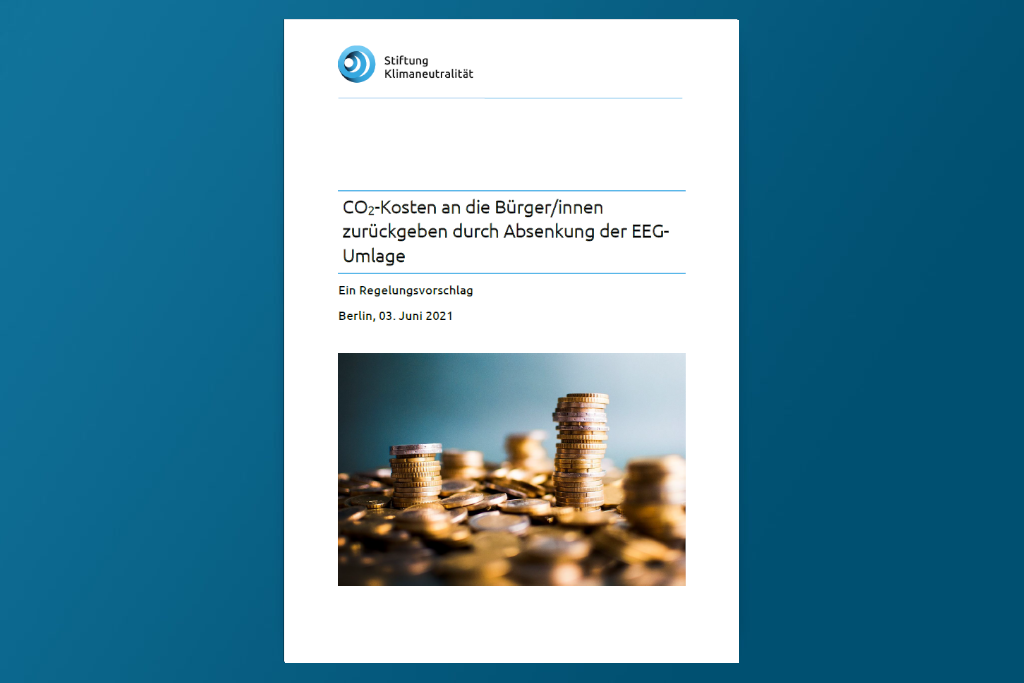An effective CO2 price significantly above today’s level and the current price path planned by the German government needs to be part of any serious climate policy. Moreover, climate neutrality requires extensive electrification of as many sectors of the economy as possible. For two decades, the German Renewable Energy Sources Act (EEG) levy was the guarantor of reliable support for renewable energies, but today it hinders investments into electrifying other sectors.
Climate Neutrality Foundation has now developed a coherent overall concept for the first time (publication in German only). In return for a necessary increase in carbon prices for fossil fuels in the building and transport sectors, this concept provides for a significant reduction in electricity costs by abolishing the EEG levy. This not only creates clear incentives for electrification of the buildings and transport sectors. It also means that policymakers no longer have to “incentivize” against distorted market forces with scarce tax resources. It is thus a “win-win strategy” for climate protection.
A study by the Öko-Institut commissioned by the Climate Neutrality Foundation shows in detail and on the basis of a consistent scenario that it is possible to refinance the EEG costs from the revenues from CO2 pricing up to 2025 (study in German only, for English summary see pp. 7-9). In contrast to other studies, the Öko-Institut has taken into account the pre-burdening of the Energy and Climate Fund (EKF) with various subsidy programs. However, it is apparent that reallocations will be necessary.
The experts found that the reform has a clearly progressive distribution effect at the level of private households. This means that households with lower income will be relieved the most in relative terms. The average burden across all households is about 20 euros per person. Averaged across all income groups, this net burden is very low and corresponds to 0.1% of disposable income.
